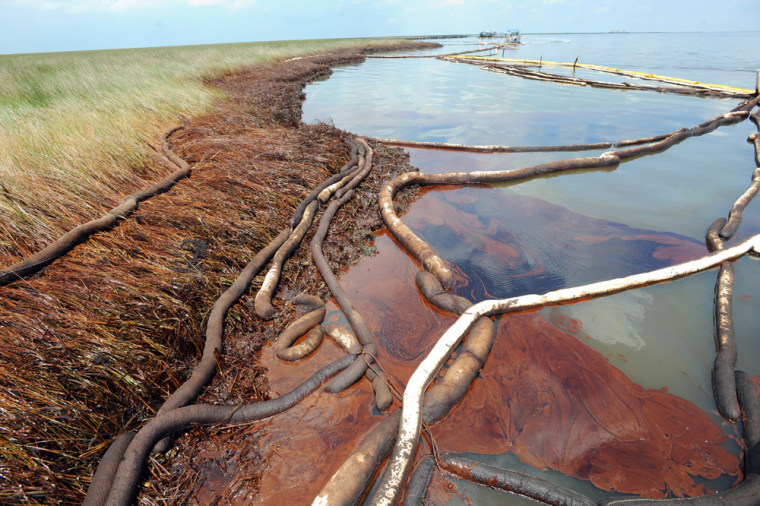BP and its partners made a series of cost-cutting decisions that ultimately contributed to the oil spill that ravaged the Gulf of Mexico coast over the summer, the White House oil spill commission said Wednesday.
In its final report on causes of the largest offshore oil spill in U.S. history, the commission said BP and its collaborators on the doomed Macondo well had lacked a system to ensure their actions were safe.
"Whether purposeful or not, many of the decisions that BP, Halliburton, and Transocean made that increased the risk of the Macondo blowout clearly saved those companies significant time (and money)," the report said.
Created by President Barack Obama in the midst of the BP spill, the panel is the first government-sanctioned group to wrap up its probe of the causes of the drilling disaster.
Charged with guiding the future of offshore drilling, the commission will release its full review of the spill and its aftermath next week.
Although the commission lacks authority to establish policy or punish companies, its conclusions could have a bearing on future criminal and civil cases relating to the spill.
The findings contradict its initial report in November, which found no evidence that Macondo project workers cut corners to save money.
After receiving criticism for that finding, the panel sought to clarify those comments, saying it did not mean companies involved with the accident had never sacrificed safety to save money.
A chart by the commission was later leaked by the media detailing decisions made while drilling the Macondo well that saved time, but increased risks.
Eventually, the panel made the document public and the final report included a similar chart.
The conclusions released so far align with many previous comments from the panel, as well as initial results of another major probe conducted by a scientific panel.
The commission's report ultimately blamed management failures for the April 20 explosion that ruptured the Macondo well and unleased millions of barrels of oil into the Gulf.
The commission also concluded the Gulf spill was not an isolated incident caused by "rogue industry or government officials".
"The root causes are systemic and, absent significant reform in both industry practices and government policies, might well recur," the report said.
The report outlines major missteps by BP; by Halliburton , which oversaw cementing for the Macondo well; and by Transocean , owner and operator of the Deepwater Horizon rig.
BP is faulted for not using a "cement bond log" or another diagnostic tool to test stability of the cementing.
The report said BP's "fundamental mistake" was failure to exercise caution before relying on the cement as a barrier to the flow of oil and gas up the well.
BP was also blasted for various decisions made as it attempted temporarily to abandon the Macondo well. BP's decision to displace mud in the riser pipe before setting a cement plug or another barrier "unnecessarily and substantially increased the risk of a blowout", the report said.
A BP spokeswoman declined to immediately comment on the commission's report.
The report reiterated the panel's prior criticism of Halliburton's cement job on the project. Halliburton documents strongly suggest the company may have pumped cement into the well before receiving any test data that indicated it would be stable, the report said.
Halliburton is still reviewing the findings, a company spokeswoman said, also declining immediate comment.
Transocean and BP were chided for lacking an internal procedure for interpreting negative pressure tests, which workers on the Deepwater Horizon rig misread.
In addition, Transocean failed to communicate to crew lessons learned from a similar incident on one of the company's' rigs that almost led to an accident in the North Sea four months before the Macondo accident.
In response to the report, Transocean said the company's workers were "well trained" and considered among the best in the business. The company also said that consistent with industry standards, the final procedures on the rig were directed by BP engineers.
"Based on the limited information made available to them, the Transocean crew took appropriate actions to gain control of the well," a Transocean spokesman said.
The commission said U.S. government regulators lacked the authority, resources and expertise to prevent safety lapses.
Since the spill, the Obama administration has restructured the federal offshore drilling regulator and implemented a raft of new regulation aimed at strengthening government oversight.
